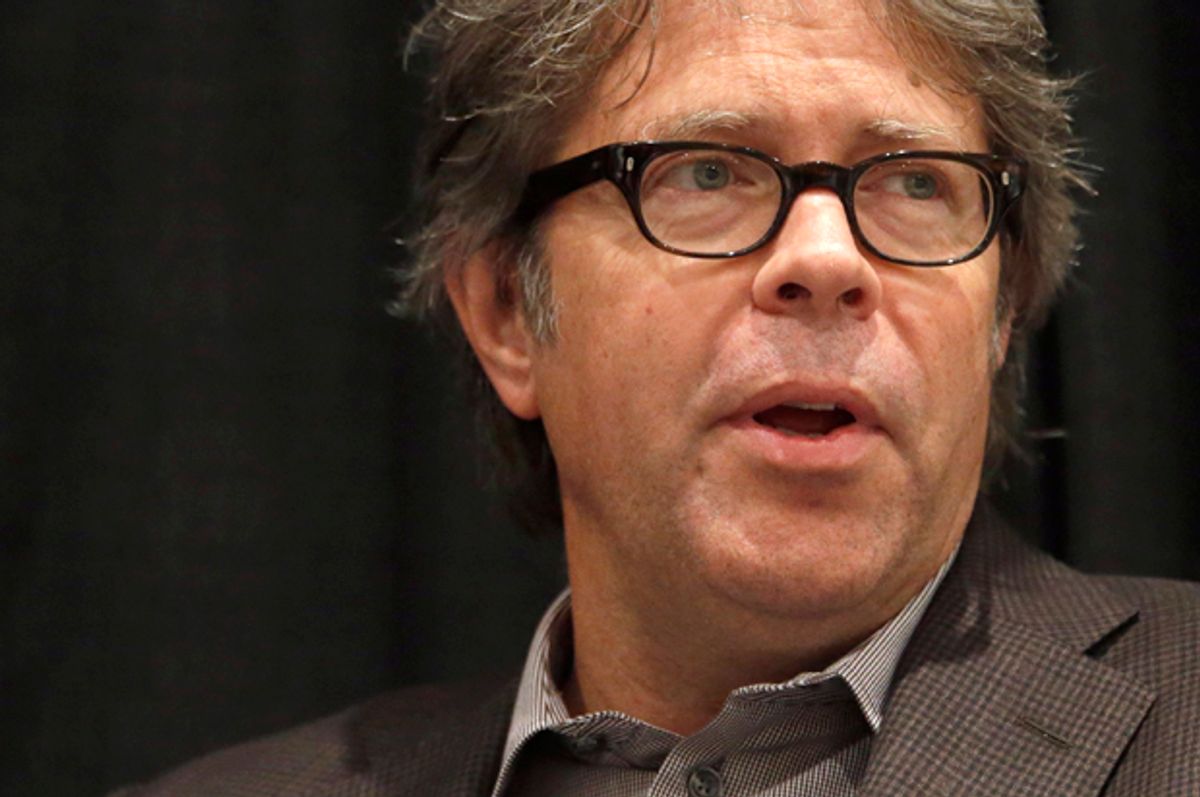Jonathan Franzen -- author of the critically acclaimed novels "Freedom," "The Corrections" -- is frequently hailed as a writer capable of portraying psychological and moral complexity in works that double as entertaining beach-reading, and his most recent, "Purity," is evidently no different. Also unchanged from the hype that surrounded the release of his previous books is their author's propensity to unwittingly share horrible things about himself in interviews, as he did repeatedly in a long interview just published with Slate's Isaac Chotiner.
Over the course of the conversation, the honest-to-a-fault author revealed:
- Why he will not be writing about race: "I don’t have very many black friends. I have never been in love with a black woman. I feel like if I had, I might dare...I write about characters, and I have to love the character to write about the character. If you have not had direct firsthand experience of loving a category of person—a person of a different race, a profoundly religious person, things that are real stark differences between people—I think it is very hard to dare, or necessarily even want, to write fully from the inside of a person."
- Another reason he won't be writing about people who aren't like him: "I’m lazy. I don’t like to do research for books. Sometimes I put a gun to my own head and force myself to do research when I know nothing about a subject, but the idea of subjecting myself to things just to gather impressions—I upbraid myself for not being a real novelist because I won’t go out with a notebook and gather impressions. I won’t wade into difficult situations trying to get material."
- On the quality of research he performs when he puts that proverbial "gun" to his head: "I am not spending my day on Twitter. [My feeling on this] grows out of my experience as a fiction writer, which is that it’s better not to know too much about something. Go in, get a little taste, follow your intuition: What is your instinct telling you about what you are observing? And then get out and really think about it and use your imagination."
- What he would do in the event of a fascist take over, maybe: "I don’t think of myself as a brave person, but I suspect that if this country fell into fascism, and journalists were being persecuted and freedom of speech was being trampled on, I would probably stand up and get myself shot over it, just because there are a few things I really care about[, however] militating against the likelihood of that is my dislike of joining rallies."
- Why he would probably not do that much: "I can [talk to people who disagree with him politically], but it makes me uncomfortable. He can do it with a kind of sincerity that I don’t think I would have. I don’t know. I work well overseas because people don’t have preconceptions of what kind of person I am based on my glasses or my clothes."
Twitter, the very medium he deemed worthy of criticizing from a position of ignorance, was understandably unkind:



Shares